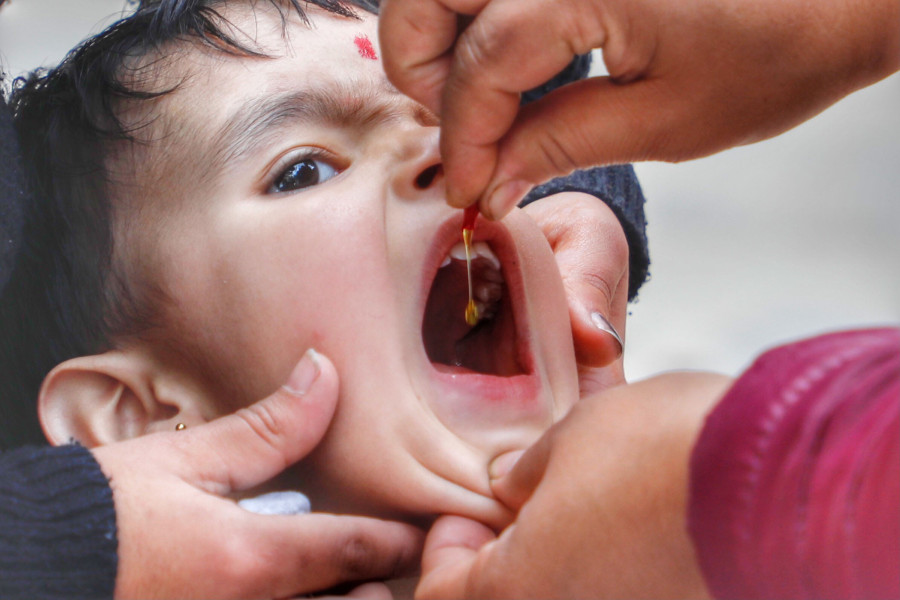National
Vitamin A supplement campaign starts amid pandemic
The two-day drive aims to administer the crucial vitamin and deworming tablets to over 2.7 million children aged between six months and five years.
Arjun Poudel
The Ministry of Health and Population on Thursday launched a two-day nationwide campaign to administer vitamin A supplement and deworming tablets, which experts hope will help fight against infections including Covid-19 amid the pandemic.
The ministry aims to administer vitamin A supplements to over 2.7 million children aged between six months and five years. Children above 12 months are given the deworming tablets.
“The campaign started smoothly throughout the country,” said Kedar Parajuli, chief of the nutrition section at the Family Welfare Division. “We have arranged for all safety measures. We would like to request all parents, who did not give their children vitamin A supplement and deworming tablets, to give them the doses tomorrow.”
However, the general public does not seem to be assured of the government’s claims. “We don’t know whether or not people will bring their children for the vitamin supplement and deworming tablets,” Hari Kunwar, chief of the Health Division of the Kathmandu Metropolitan City, said. “Compared to the target, very few people took their children to the booths set up to distribute the supplement today.”
The metropolis estimates that over 30,000 children under five reside in its 32 wards but the target is never met in any national health programme.
Child health experts said that the vitamin A supplementation programme is even more important in the ongoing pandemic, as it boosts immunity in children.
“Well nourished children have stronger immunity, which helps to fight infections including the coronavirus,” Dr Rajendra Panta, a former chief of the Child Health Division, told the Post. “Malnourished children are always at risk of infections.”
The vitamin A campaign is largely a success story in Nepal, as it has helped tackle the issue of vitamin A deficiency among children, which used to be a major public health problem in the country. It is estimated that the campaign has reduced deaths among children under five years of age by 23 percent.
According to Panta, a study carried out in Siraha and Sarlahi districts in the past showed that about 49 percent deaths of children under five years are linked with vitamin A deficiency.
The programme had a coverage rate of over 94 percent, the highest among health campaigns and programmes in the country in the past. But in the year 2018, only 85 percent children were administered vitamin A supplements and deworming tablets.
“Importance of the campaign has further increased in the existing context, as we have to improve the immunity of our children,” Dr Bikas Lamichhane, a child health expert, said. “But we should ensure that safety measures are followed properly and children will not get infected with the coronavirus while administering the supplement.”
According to Lamichhane, vitamin A deficiency has long term impacts on the overall well-being of children.
More than 50,000 female community health volunteers serving throughout the country are tasked with administering the supplement and deworming tablets.
The Health Ministry has been conducting such a nationwide campaign twice a year—in April and in October—since 2003. October’s campaign was postponed to November this year due to the festivals of Dashain, Tihar and Chhath.
According to the World Health Organization, vitamin A deficiency causes visual impairment (night blindness) and vulnerability to illnesses like measles and diarrhoea among children. The supplement also boosts immunity and ensures children’s natural growth.




 9.7°C Kathmandu
9.7°C Kathmandu














